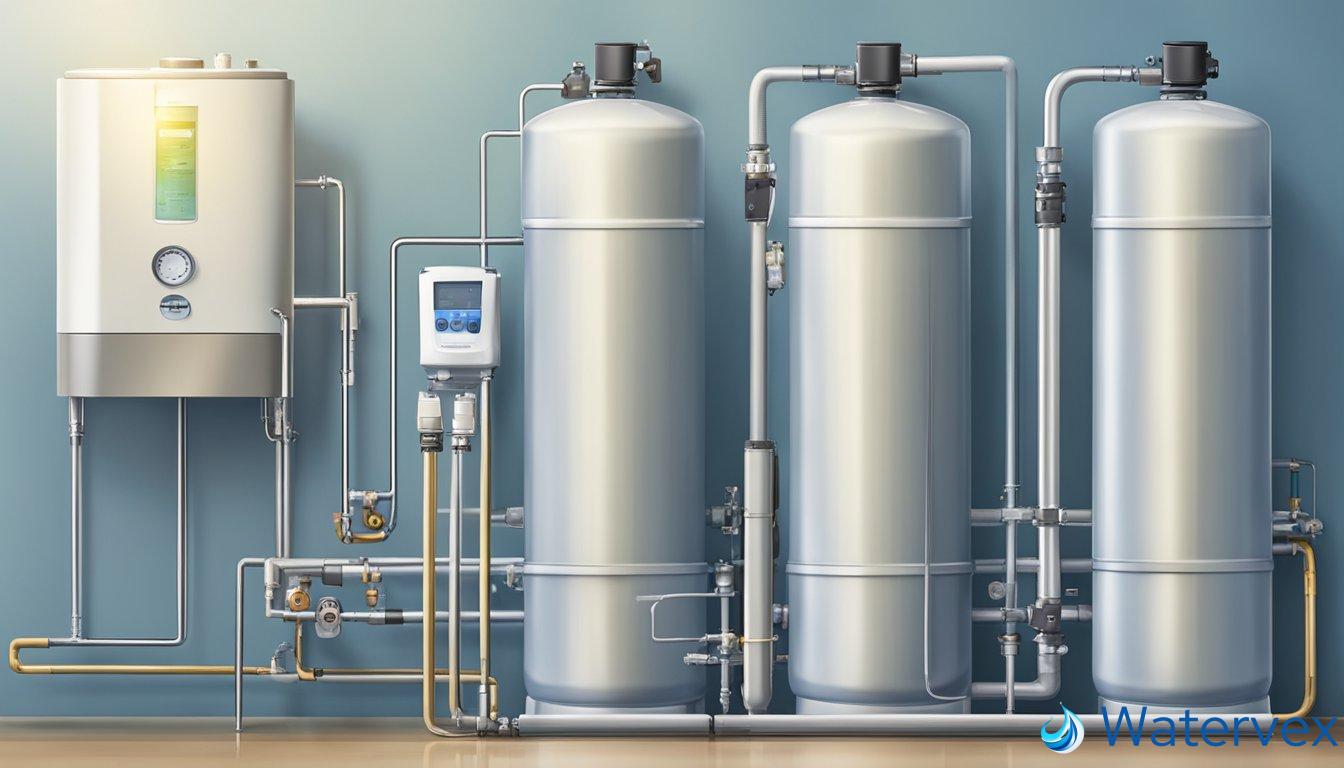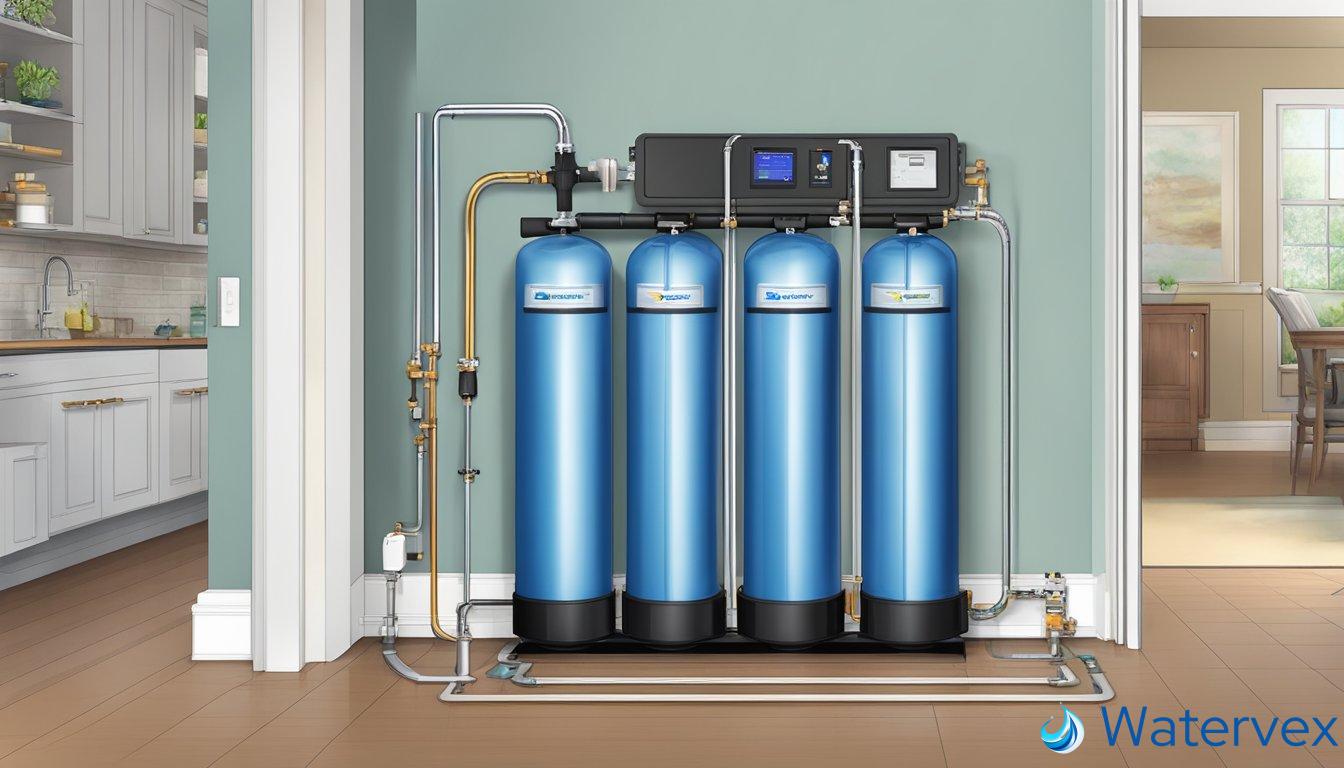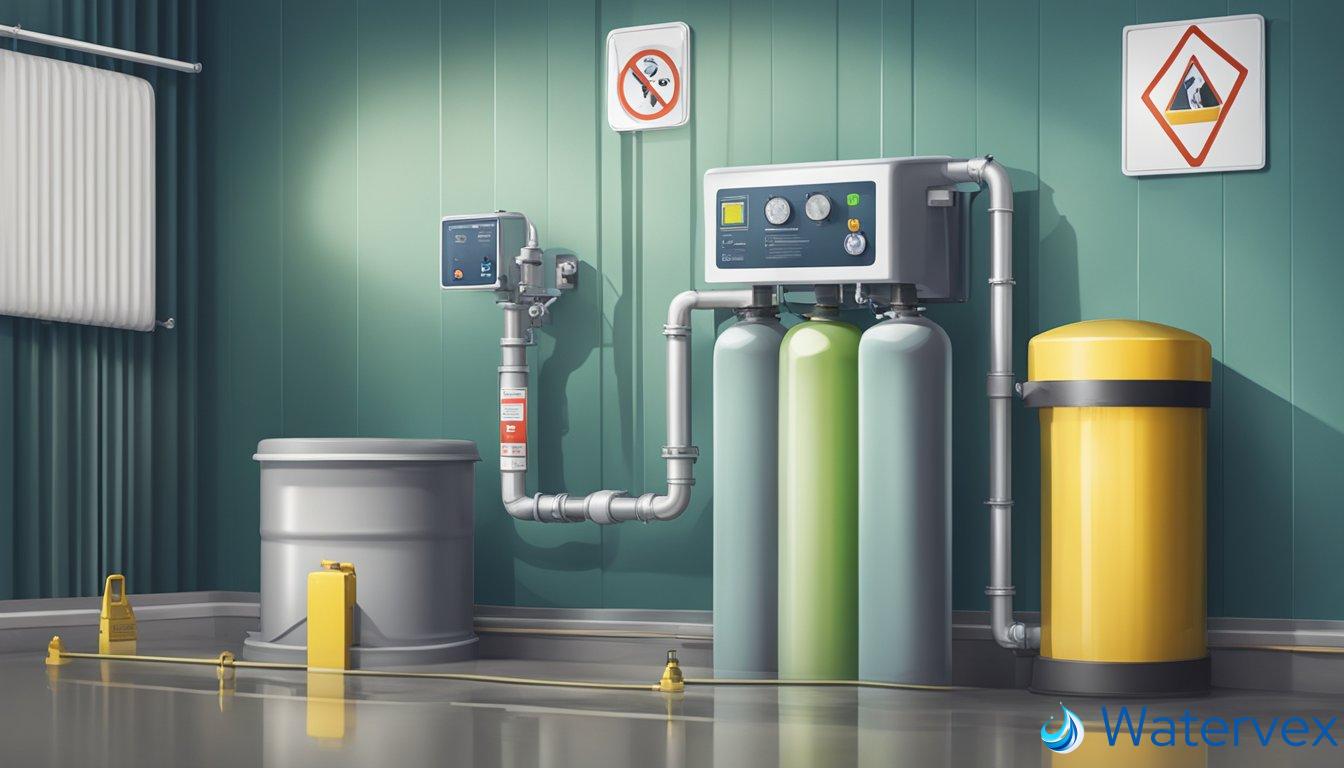The question of whether a water softener can make you sick is a point of uncertainty for many households that consider adding such a system to their homes. Addressing concerns about the impact of softened water on health is important, especially for those who consume tap water daily. Water softeners function by replacing minerals like calcium and magnesium with sodium, which softens the water, preventing scale buildup and prolonging appliance life. While this process can improve water quality by eliminating hard water, it also alters the mineral composition of your tap water, which could have implications for your health.

Having a water softener can offer a sense of relief from the problems associated with hard water, such as limescale and skin irritation, but some individuals worry about the added sodium in their drinking water. While most water softeners do increase sodium levels, the amount is typically considered to be minimal, but it is essential to take into account whether such changes are suitable for all family members, including those who may have specific dietary restrictions. Moreover, maintaining a water softener is crucial, as a poorly managed system might not work effectively and could potentially introduce other health risks.
Key Takeaways
- Water softeners replace minerals in hard water with sodium, which can change the quality of your tap water.
- Incorporating a water softener can address hard water issues, but maintenance is key to ensuring water safety and system efficacy.
- It’s important to consider if the mineral alterations caused by water softeners align with the health needs of all individuals in the home.
Is Softened Water Safe for Consumption?
When you consider using water softeners in your home for drinking and cooking, key factors to evaluate are the levels of sodium introduced and the potential health implications for your family.
Assessing the Safety of Softened Water for Drinking and Cooking
Water softeners operate by ion exchange, which effectively removes minerals like calcium and magnesium that cause water hardness; however, this process introduces sodium into the water. While this substitution can improve your water quality and prevent scale buildup, it has raised concerns regarding its safety for consumption.
For most healthy adults, the sodium intake from softened water is not significant compared to overall diet; however, individuals on a low-sodium diet or with blood pressure issues should be cautious. To understand the effects on your specific dietary needs, compare your total daily sodium consumption to your dietary targets.
- Additional sodium: Softened water contributes a marginal amount to your sodium intake.
- Blood pressure: Monitor if you have been advised to watch your sodium levels.
- Low-sodium diets: Consult with a healthcare provider to ensure your dietary needs align with softened water consumption.
Your cooking methods may also play a role. For instance, using softened water to boil pasta dilutes sodium content, whereas using it to make soup could concentrate sodium levels, directly impacting intake.
Understanding Water Softener Components and Their Role
The central component in most water softeners is the resin tank, which houses negatively charged beads. As water passes through, minerals like calcium and magnesium are replaced by sodium or potassium chloride, depending on the type of softener salt you use.
- Ion exchange: Swaps undesirable minerals for sodium or potassium ions.
- Resin beads: They’re the site of the ion exchange in your softener’s tank.
Knowing the composition and maintenance of your water softener is crucial. Ensure it’s set up properly and functioning as expected to keep sodium levels within a safe range. Additionally, some softeners allow you to use potassium chloride instead of salt, which can be a suitable alternative for those watching their sodium intake.
Regular testing of your water’s sodium content post-softening can help you track and manage the levels, aiding in informed decisions about consumption for cooking and drinking. Remember to change the resin periodically and maintain your system according to the manufacturer’s guidelines to ensure optimal performance and water quality.
What Are the Potential Health Risks of Using a Water Softener?

When evaluating the safety of water softeners, it’s crucial to understand that they can introduce elevated sodium levels into your water, which may present a health concern for certain individuals.
Link Between Sodium Intake and Health Issues
Water softeners work by replacing minerals like calcium and magnesium with sodium. This process increases the sodium content in your water. For people with high blood pressure or heart conditions, this added sodium can contribute to health risks. On average, softened water contains an additional 12.5 milligrams of sodium per 8 ounces for every grain per gallon of hardness removed. While this may not seem significant, when compared to the sodium content of processed foods, increased sodium in drinking water might compound dietary intake, exacerbating hypertension. A salt-free water conditioner is a viable alternative, as it conditions water without increasing sodium levels.
Impact on Skin and Hair from Long-term Softened Water Use
Softened water, due to its high sodium content, might leave your skin feeling slimy, often because soap is less effective in fully rinsing away. Over time, some individuals experience dry skin or eczema as a result of the skin’s natural oils being stripped away. Your hair might also feel brittle because softened water can disturb the hair’s cuticle. Employing a water conditioner or using reverse osmosis for drinking water can help mitigate these side effects.
Environmental Concerns and Water Softener Systems
Beyond personal health, water softeners pose potential environmental concerns. The backwash—water containing high concentrations of salt—that’s flushed from water softeners can enter wastewater, harming local ecosystems and potentially contaminating fresh water sources. These high salt levels can degrade soil structure and harm plant life. Installing an environmentally-friendly water conditioner could be a responsible choice to lessen the environmental impact.
Can Water Softeners Lead to Illness?

Water softeners are a common household installation to combat hard water, and there’s debate about their health implications. Experts investigate whether their usage is safety or if they could potentially be linked to health issues.
Evaluating Myths and Realities of Water Softening and Illness
Despite common beliefs, a properly maintained water softener should not make you sick. Some concerns arise regarding the sodium added to the water during the softening process; however, when a water softener is adjusted correctly, the salt level remains quite low and typically does not pose health risks. Notably, the World Health Organization has not identified softened water as problematic in terms of leading to diseases such as kidney stones, cancer, or stroke. The actual risk lies more in the maintenance of these systems. Poorly maintained systems can harbor bacteria and contaminants, which, if leaked into your plumbing system, could lead to health issues.
Essential Minerals and Their Availability in Softened Water
Softened water does have reduced levels of essential minerals such as calcium and magnesium, as these are the hardness minerals removed by the softener. While these minerals are necessary for health, they are only needed in trace amounts and are typically consumed through a balanced diet. Moreover, the link between consuming these minerals through water and health benefits is not as direct as once believed. It’s important to know that while softened water may not provide these healthy minerals, it still is safe to drink, and you’re likely getting these minerals from food sources.
In essence, if you maintain your water softener properly and ensure your diet includes diverse sources of essential minerals, using a water softener should not lead to illness. However, it’s crucial to stay informed and confer with experts regarding the best practices for your water softening system’s maintenance.

